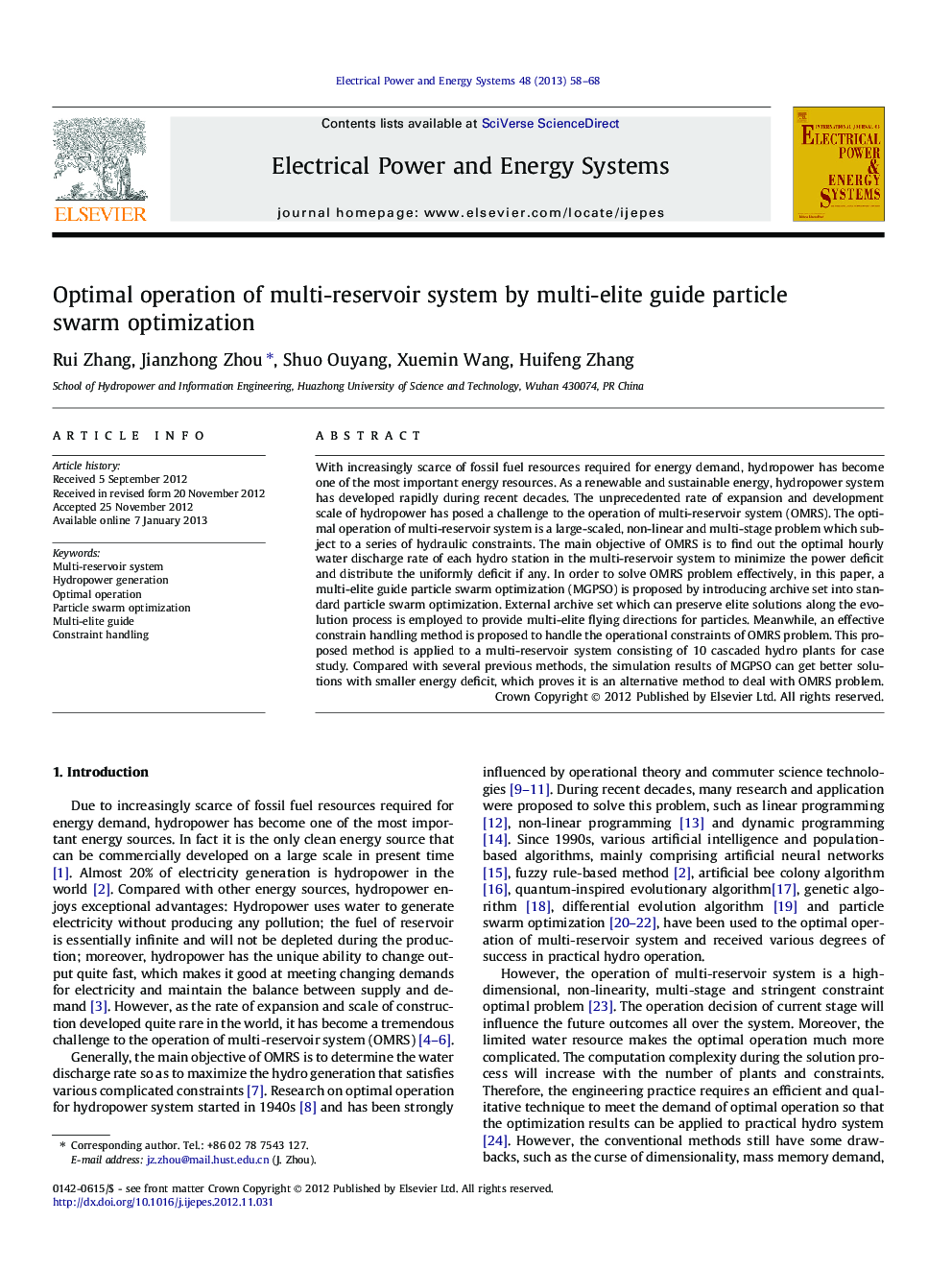| Article ID | Journal | Published Year | Pages | File Type |
|---|---|---|---|---|
| 400485 | International Journal of Electrical Power & Energy Systems | 2013 | 11 Pages |
With increasingly scarce of fossil fuel resources required for energy demand, hydropower has become one of the most important energy resources. As a renewable and sustainable energy, hydropower system has developed rapidly during recent decades. The unprecedented rate of expansion and development scale of hydropower has posed a challenge to the operation of multi-reservoir system (OMRS). The optimal operation of multi-reservoir system is a large-scaled, non-linear and multi-stage problem which subject to a series of hydraulic constraints. The main objective of OMRS is to find out the optimal hourly water discharge rate of each hydro station in the multi-reservoir system to minimize the power deficit and distribute the uniformly deficit if any. In order to solve OMRS problem effectively, in this paper, a multi-elite guide particle swarm optimization (MGPSO) is proposed by introducing archive set into standard particle swarm optimization. External archive set which can preserve elite solutions along the evolution process is employed to provide multi-elite flying directions for particles. Meanwhile, an effective constrain handling method is proposed to handle the operational constraints of OMRS problem. This proposed method is applied to a multi-reservoir system consisting of 10 cascaded hydro plants for case study. Compared with several previous methods, the simulation results of MGPSO can get better solutions with smaller energy deficit, which proves it is an alternative method to deal with OMRS problem.
► A multi-elite guide particle swarm optimization is proposed in this paper. ► Archive set is employed to provide multiple flying directions for particles. ► An effective constrain handling method is proposed to deal with OMRS problem. ► Simulation results prove MGPSO get better solutions with smaller energy deficit.
